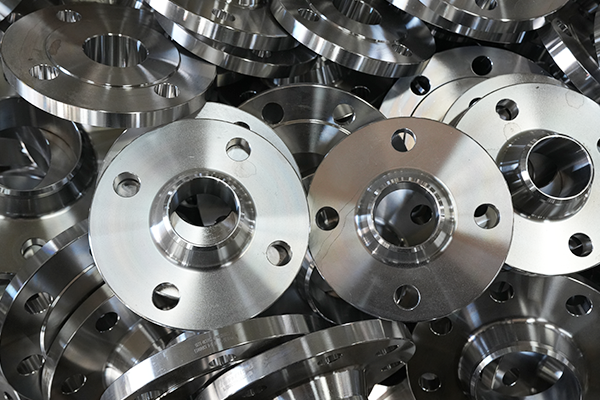NewsDetails
How to Extend Flange Lifespan Through Proper Maintenance
author:Zhantong time:2025-05-23 00:44:13 Click:188
Flanges are critical for piping system integrity, and proactive maintenance can prevent leaks, corrosion, and catastrophic failures. Below are best practices to maximize flange service life in industrial applications.
1. Regular Inspection & Monitoring
(1) Visual Inspections
Check for:
Corrosion (rust, pitting, discoloration).
Gasket degradation (compression loss, cracks).
Bolt loosening (missing nuts, uneven gaps).
Frequency: Every 3-6 months (more frequent in harsh environments).
(2) Non-Destructive Testing (NDT)
Ultrasonic Testing (UT) – Detects internal cracks/wall thinning.
Dye Penetrant Testing (PT) – Identifies surface cracks.
Thermal Imaging – Detects hot spots from leaks.
(3) Fugitive Emission Monitoring
Use gas detectors (for H₂S, hydrocarbons) near flange joints.
Mandatory in refineries & chemical plants (EPA/OSHA compliance).
2. Proper Bolt Tightening & Torque Management
(1) Correct Bolt Tightening Sequence
Follow ASME PCC-1 cross-pattern tightening to avoid gasket distortion.
Use a torque wrench (never impact tools for final tightening).
(2) Re-Torquing After Initial Operation
Thermal cycling can loosen bolts. Re-torque after:
24-48 hours of startup.
Major temperature/pressure changes.
(3) Lubrication & Anti-Seize Compounds
Apply molybdenum disulfide (MoS₂) or nickel-based anti-seize to bolts.
Prevents galvanic corrosion and eases future disassembly.
3. Gasket Maintenance & Replacement
(1) Choose the Right Gasket Material
Application
Best Gasket Type
High-temperature steam Spiral-wound (SS + Graphite)
Acid/caustic service PTFE or Grafoil®
High-pressure gas/oil Ring-Type Joint (RTJ) metal
(2) Gasket Replacement Signs
Flattening >30% of original thickness.
Visible cracks, burns, or chemical attack.
Recurring leaks after re-torquing.
(3) Proper Installation
Clean flange faces before installing new gaskets (no old residue).
Never reuse compressed gaskets.
4. Corrosion Prevention Strategies
(1) Protective Coatings & Linings
Epoxy coatings – For carbon steel flanges in humid environments.
PTFE lining – For acidic/alkaline fluids.
(2) Cathodic Protection (Offshore/Underground)
Sacrificial anodes (zinc/magnesium) for submerged flanges.
Impressed current systems for large pipelines.
(3) Material Upgrade in Aggressive Environments
Replace carbon steel with:
Stainless steel (316L) – General corrosion resistance.
Duplex/Super Duplex (F51/F53) – For sour (H₂S) service.
Hastelloy – Extreme chemical resistance.
5. Vibration & Misalignment Control
(1) Avoid Flange Placement Near Vibrating Equipment
Use flexible couplings near pumps/compressors.
Install pipe clamps/supports to reduce movement.
(2) Laser Alignment for Critical Flanges
Misaligned flanges cause uneven gasket wear.
Correct using shims or adjustable supports.
6. Record-Keeping & Predictive Maintenance
(1) Maintenance Logs
Track:
Torque values.
Gasket replacement dates.
Leak incidents.
(2) Predictive Maintenance (PdM) Technologies
Acoustic emission sensors – Detect early-stage leaks.
Smart bolts with strain gauges – Monitor bolt load in real-time.
 Recommended Products
Recommended Products
 Contact us
Contact us
—— Contact:Manager
—— Tel:+86 15231788966
—— Email:info@zhantongpipe.com
—— Url:https://www.zhantongpipe.com
—— Address:Mengcun Hui Autonomous County, Cangzhou City, Hebei Province









